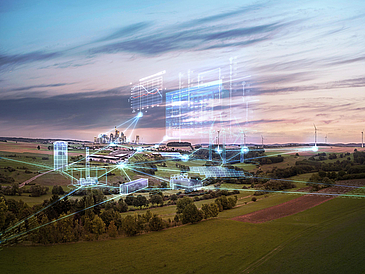Adapted from Press Release: Nr.: 64
Artificial intelligence (AI) is currently one of the most dynamic areas of research and business. Whether it is language assistance systems, cancer diagnosis or autonomous driving - a correct and powerful mathematical basis is always the prerequisite for new AI solutions. The expertise for this also comes from the University of Bremen: The Center for Technomathematics is now receiving two million euros to realize new AI applications in several projects as a scientific partner.
"Deep learning," which roughly translates to "deep learning" or "multilayered learning" in German, is a highly interesting subfield of artificial intelligence. "Ultimately, this term refers to a machine learning technique that is inspired by the network of neurons in the human brain," says Dr. Jens Behrmann, head of the Deep Learning research area at the AG Technomathematik in the center of the same name at the University of Bremen. As far as research in this field is concerned, the expertise of Bremen University mathematicians is in great demand: The Federal Ministry of Education and Research (BMBF) and the Klaus Tschira Foundation are now funding the Center for Technomathematics (ZeTeM) with a total of two million euros. In seven projects - located in the ZeTeM working group of Professor Peter Maaß - basic mathematical AI research is to be combined with concrete industrial applicability.
Recognize and interpret information
"Deep learning is about machines learning competencies, throughout the entire processing chain from recognizing raw information to interpreting it and making a statement," explains Dr. Lena Hauberg-Lotte, who also works in Deep Learning. "In simpler terms, the AI is fed images, for example - of a traffic sign with Chinese characters - and then promptly provides the German translation." What works practically smoothly today with applications such as Google Translator or the translation program DeepL is based on years of intensive AI research, including and especially by mathematicians.
The successes of Deep Learning have been noticeable for several years and have become part of everyday life - not only in speech and image recognition, but also in navigation or translations. But development continues unabated, "and mathematics with its algorithms is always at a crucial point in the middle. These become more and more specialized as the questions and applications become more difficult," says Jens Behrmann. "For AI to be used reliably as an assistant in medicine, for example, the algorithms must function 100 percent error-free." The strengths and weaknesses of AI solutions can be described very well using the language of mathematics - a specialty of ZeTeM.
Seven projects with numerous partners
The range of possible AI applications is huge and will comprehensively influence and change human life. The expertise of Bremen's technomathematicians is now flowing into seven new projects that are being worked on together with other partners from industry and science. The industrial partners include EWE, Siemens, Engineering System International, Deutsche Bahn, Bruker Daltonik, ProteoPath, ProCon X-Ray, atacama blooms and Volkswagen. Two examples:
- In the AGENS project ("Analytical-Generative Networks for System Identification"), the technomathematics team is working with industrial partners EWE and Siemens as well as scientific partners from Kaiserslautern and Aschaffenburg to predict future electricity requirements. "The background to this is that the regional electricity provider EWE, based in Oldenburg, has to register the expected electricity requirements of its medium-sized customers with the network operators on a daily basis," explains Jens Behrmann. "That's several thousand companies and several gigawatts at stake." Due to the ever-increasing share of renewable energy, the electricity market has become very volatile, so the most accurate projections possible are needed for reliable operation. To this end, new AI models are being developed in the AGENS project that link countless data from the past and the future (such as past consumption, weather forecasts, peak loads) and derive a reliable forecast.
How AI is easing the burden on doctors diagnosing cancer
- A project called SPA+ ("Small Data Problems in Digital Pathology and Program Accompanying Measures") is about different approaches in which AI in cancer diagnostics should act as an assistance system for physicians in digital pathology. "Currently, doctors usually assess the high-resolution digital images of removed tissue on very large screens or directly under the microscope - one by one, all day long," says Lena Hauberg-Lotte. A time-consuming and tiring job. AI programs are designed to help filter out the areas that are important to the assessors. "This is about letting AI take care of the routine. It gives the experts more time to actually triage and assess the critical illnesses." SPA+ project partners are the Bremen-based company Bruker Daltonik, the company ProteoPath from Trier, and the universities of Oldenburg and Siegen.
More information:
http://www.math.uni-bremen.de/zetem/cms/detail.php?template=ag_projekte&id=4350&language=en
https://www.uni-bremen.de/en/
Contact:
(due to the current social situation, please contact us first by e-mail)
Dr. Jens Behrmann
Zentrum für Technomathematik (ZeTeM)
Universität Bremen
E-Mail: jensb@math.uni-bremen.de


